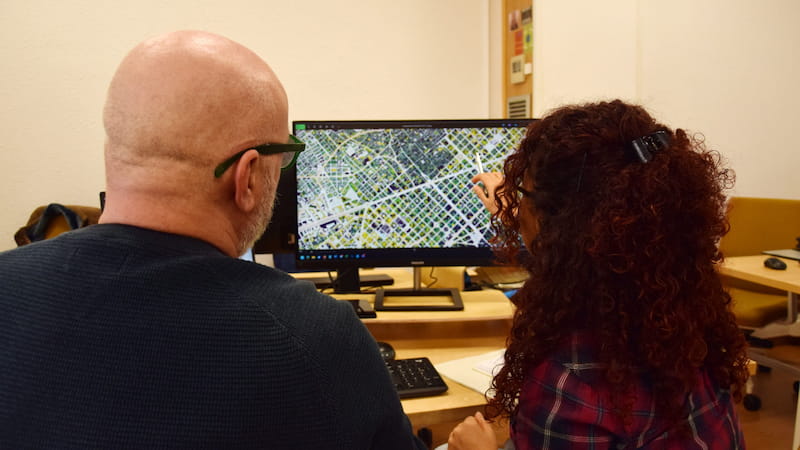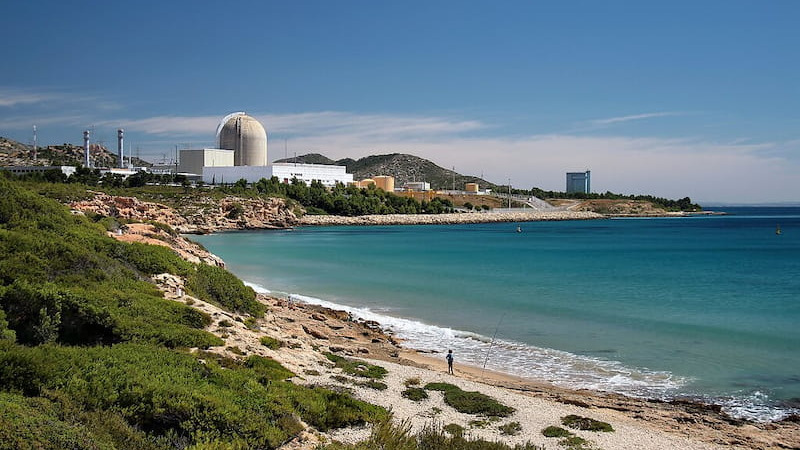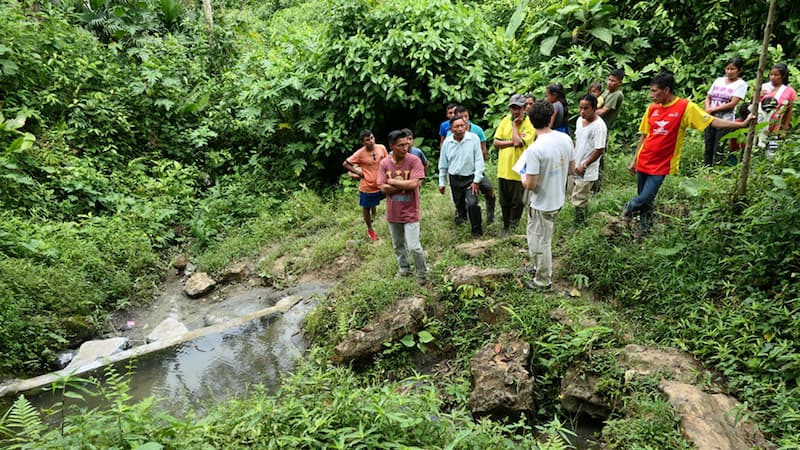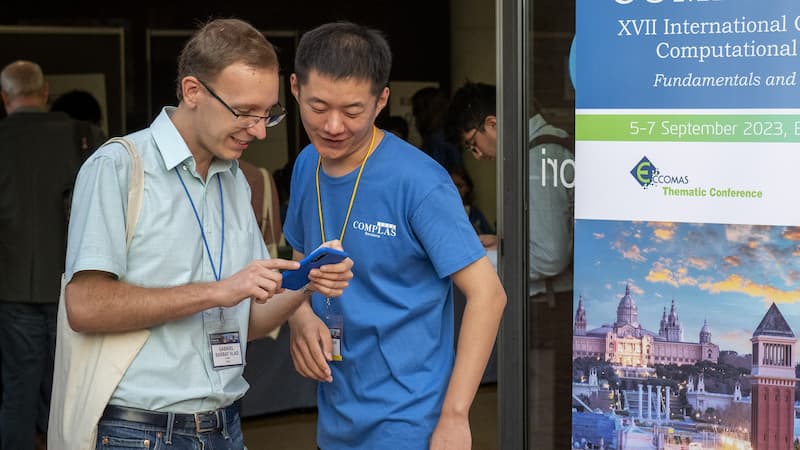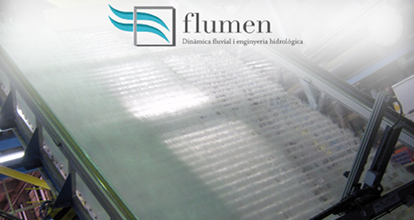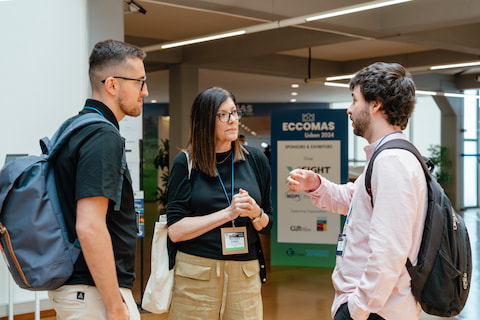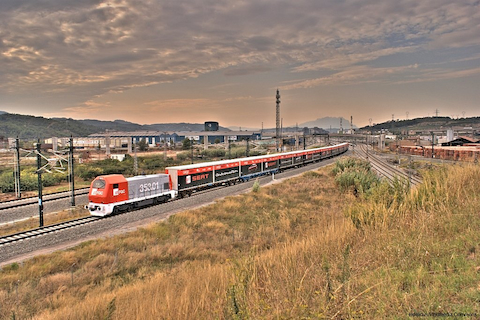Alliances
Strategic alliances are key to CIMNE’s mission, fostering innovation through collaboration with institutions, governments, and industry to address real-world engineering and societal challenges.

Flumen Institute
The FLUMEN Institute advances knowledge and solutions in river dynamics and hydrologic engineering through research, modelling, and experimentation. It was created in 2012 as a partnership between CIMNE and the UPC.
The FLUMEN Institute for River Dynamics and Hydrologic Engineering is a joint initiative of the Technical University of Catalonia – BarcelonaTech (UPC) and CIMNE. It was founded to promote advanced research, training, and technology transfer in the fields of fluvial hydraulics, sediment transport, hydrology, and hydraulic structures.
The institute has a large-scale experimental laboratory that supports physical modelling of river dynamics and hydraulic infrastructures. This facility enables in-depth studies combining experimental, numerical, and theoretical approaches, reinforcing the institute’s leadership in applied hydrologic and environmental research.
Integrated Expertise and Real-World Impact
The research team, originally known as the FLUMEN RTD Group, is now integrated into CIMNE’s Machine Learning and Models in Hydro-Environmental Engineering cluster, enhancing cross-disciplinary collaboration in modelling and AI-based tools.
FLUMEN’s research tackles critical societal challenges such as flood risk management, river morphology, sediment dynamics, dam safety, and the resilience of hydraulic infrastructure under climate change. The team develops and applies innovative numerical models, including 2D and 3D solvers, as well as machine learning techniques to support public administrations and private partners in designing safe, sustainable, and efficient solutions.
A Bridge Between Research and Society
Through its research, FLUMEN has contributed to shaping public policies, supporting decision-making for institutions such as the Catalan Water Agency and the Ministry for Territory. It is widely recognized as a reference in applied engineering for water systems, helping to mitigate risks and improve resource management in Mediterranean and international contexts.
The FLUMEN Institute represents the power of strategic alliances in research and innovation, connecting cross-institution academic knowledge with societal needs in the field of hydro-environmental engineering.
MEET THE FLUMEN RESEARCH GROUP
Partners and Clients
Through competitive research projects, private innovation contracts and research transfer ventures, CIMNE has built strong working relationships with global industry leaders, public authorities and cross-sector organisations.
Abengoa
Acciona Energía, SA
AFEI Sistemas y Automatización, SA
Airbus España, SL
Altair
Andra
ArcelorMittal
Autoridad Portuaria de Barcelona
Buildair
Ciemat
Ciment Català
CIMSA
CIUDEN – Fundación Ciudad de la Energía Civil
Defence Commission
CSIC
Dacartec
DGODT
Diputación Foral de Gipuzkoa
Dragados, SA
EIG EURIDICE
Endesa Generación, SA
Endesa, SA
Enresa
EURECAT
Facultat de Nàutica de Barcelona (UPC)
Gassó Serveis per l’Administració, SL
Generalitat de Catalunya
GISA
Govern d’Andorra
Government of Barbados
Grupo Antolín Ingeniería, SA
Igeotest
Incasòl
INIVE
Inter-American Development Bank
Isofotón
Municipio del Distrito Metropolitano de Quito
Nuclenor
ONDRAF/NIRAS
Pie Medical Imaging
Pirelli Iniciativas Tecnológicas, SLU
Quantech ATZ, SA
Serra Soldadura, SAU
SKB
Studiecentrum voor Kernenergie
TAO Technologies GmbH
The World Bank Group
UNISDR
UNOPS Switzerland Operations Centre (SWOC)
UTE Accesos a la Estación
UTE AVE Trinidad
UTE Estructura Sagrera AVE
UTE Hospitalet (OHL-Guinovart – OSHSA)
UTE Torrassa (Sacyr-Cavosa-Scrinser)
Weatherford International, plc
Scientific Societies
CIMNE leads in managing scientific societies, offering an encompassing approach for highly specialized organizations, fostering global collaboration and advancing research in computational and engineering sciences.
CIMNE has become a global reference in managing scientific societies in numerical methods and computational engineering. Through its Congress Bureau, it provides strategic, administrative, and technical support to international associations, ensuring smooth operations and impactful scientific events. Hosting the permanent secretariats of key societies, CIMNE offers tailored solutions that promote knowledge exchange, strengthen academic networks, and support the advancement of cutting-edge engineering research worldwide.

International Association for Computational Mechanics (IACM)
IACM is a global organization advancing computational mechanics, fostering collaboration and innovation. Strongly linked to CIMNE since its 1981 inception, CIMNE held IACM’s permanent secretariat from 1994 to 2016, reflecting their shared commitment to the field’s growth and excellence.
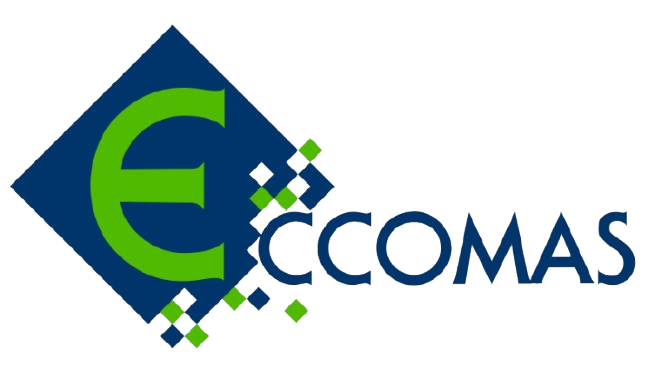
European Community on Computational Methods in Applied Sciences (ECCOMAS)
ECCOMAS is a leading scientific organization in numerical methods, founded in 1993. It groups different European associations with interests in the development and applications of computational methods in science and technology, promoting world-leading events in the field. CIMNE has led the secretariat of ECCOMAS since its founding.

Spanish Society of Numerical Methods in Engineering (SEMNI)
SEMNI emerged in 1989 with the aim of bringing together researchers, professionals, companies, and institutions interested in the development and practical applications of numerical methods. The society organises periodic conferences and events, and promotes awards recognizing young talent. CIMNE has led the secretariat of SEMNI since its inception.
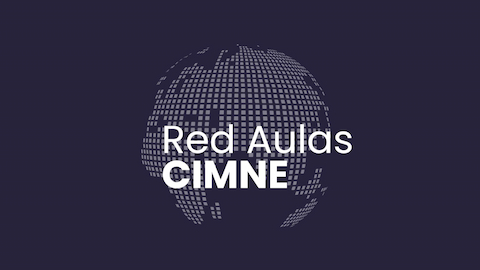
International Association of CIMNE Labs (AIAC)
SEMNI emerged in 1989 with the aim of bringing together researchers, professionals, companies, and institutions interested in the development and practical applications of numerical methods. The society organises periodic conferences and events, and promotes awards recognizing young talent. CIMNE has led the secretariat of SEMNI since its inception.
Catalan Ministry of Territory, Housing and Ecological Transition
CIMNE and the Catalan Ministry of Territory collaborate to advance sustainable mobility, climate resilience, and innovation through applied research, digitalization, and public-sector knowledge transfer.
The Catalan Ministry of Territory, Housing and Ecological Transition is one of the two founding members of the CIMNE Consortium, a long-standing partnership built on a shared vision: to use cutting-edge research and innovation to improve territorial planning, infrastructure, and environmental sustainability across Catalonia and with a global vision.
This strategic alliance fosters applied research and technology transfer in areas of key societal relevance, with direct impact on public policy and infrastructure management. Especifically, the strategic collaboration agreement for the 2025–2028 period focuses on five priority areas:
1. Public Infrastructure & Mobility
CIMNE supports the digitalization, maintenance, and safety of transport systems, helping to improve efficiency and reduce the carbon footprint of infrastructure. Through its CENIT Innovation Unit in Transport, CIMNE develops tools for mobility planning and infrastructure decarbonization aligned with Catalonia’s green transition goals.
2. Environmental and Climate Adaptation
CIMNE addresses air quality modelling, coastal resilience, and territorial adaptation to climate extremes. CIMNE contributes advanced numerical models that aid public decision-making, protect the well-being of communities and improve long-term environmental planning.
3. Energy & Sustainability
CIMNE designs energy-efficient infrastructure and renewable energy solutions that are tailored to territorial planning. The Innovation Unit in Building, Energy, and Environment (BEE Group) uses big data, artificial intelligence, and other cutting-edge technologies to create solutions that benefit the environment and society. CIMNE also develops sustainable water treatment and distribution systems, contributing to ecological transition strategies.
4. Industrial and Technological Innovation
CIMNE works on smart construction, advanced materials, and automation, helping modernize the built environment and enhance industrial sustainability through innovative fabrication methods.
5. Research and Knowledge Transfer
CIMNE actively collaborates with the Subdirecció General de Planificació i Tecnologia and the Oficina Tècnica de Col·laboració Públicoprivada de Mobilitat i Logística, providing support for public-private partnerships and socioeconomic evaluations of infrastructure projects. Its expertise in demand modelling contributes directly to strategic infrastructure planning.
This alliance is a model of how research and administration can work together to address complex challenges—from climate change to mobility—and to build more sustainable, efficient, and resilient communities.
![]()

